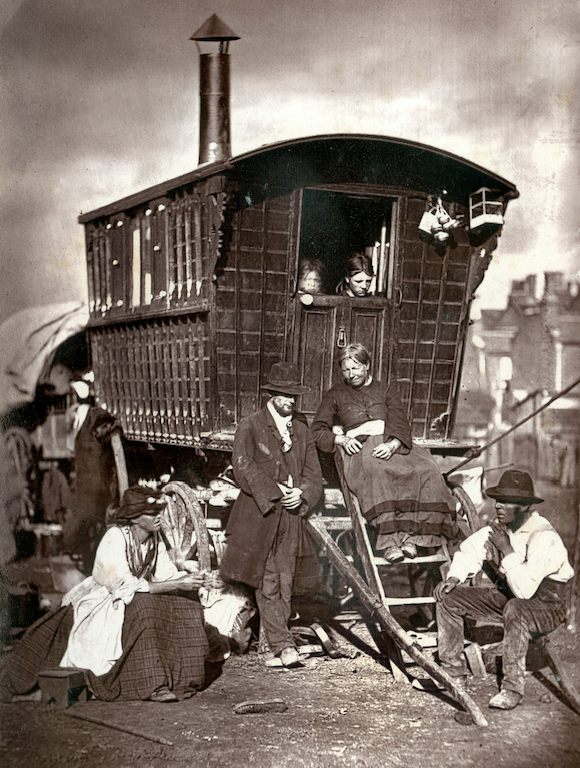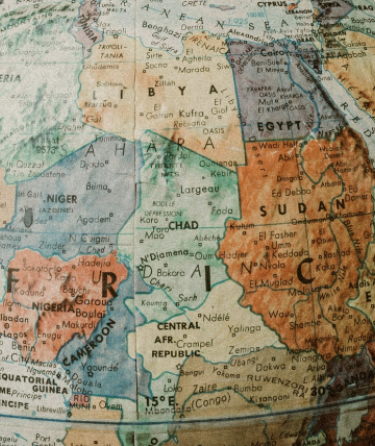History
The study of history is a window into the past that provides understanding of the present-day, and how individuals, nations, and the global community might develop in the future. Historical study instructs how societies came to be and examines cultural, political, social, and economic influences across time and space. It also builds the personal understanding of how we as individuals are the sum of a vast range of past experience and actors ourselves in the process of historical change. In short, the study of the past helps lead to greater personal insight and comprehension of each person's place in the grand sweep of the human story. Students of history learn good habits of thought. They analyze ideas and data, and develop original interpretations of such materials. They are also schooled in expressing themselves well, both verbally and in writing, essential skills whether one becomes a teacher, doctor, lawyer, businessperson, consultant, nurse—or whatever calling one may choose.

History Course Descriptions
3.00 Units (Lec 3 Hrs)
Transfer Credit: CSU, UC(CalGETC Area 4)
This course covers the History of the Americas (North, Central and
South America) from the arrival of the first humans to the libera-
tion of the Americas from the European powers (England, France,
Spain and Portugal) between 1783-1824. As the course covers a
long time span and a huge geographic area, the emphasis is on
Native American civilizations, European colonization and American
democracy. The course analyzes the American Declaration of Inde-
pendence and the United States Constitution, as well as the new
Latin American nations and the United States to 1830.
3.00 Units (Lec 3 Hrs)
Transfer Credit: CSU, UC(CalGETC Area 3B,4)
This course is a comparative survey of the political, social, economic, and cultural development of the Americas from the era of independence to the present, with special emphasis on the relationship between the United States and the Latin American nations. It covers issues including class, race, gender, social change, and revolution, in addition to examining the evolving history and impact of the U.S. Constitution.
3.00 Units (Lec 3 Hrs)
Transfer Credit: CSU, UC(CalGETC Area 3B,4)
In this course students are introduced to the great religions of the
world, exploring their evolution and impact on society throughout
history. The course begins with animisms and ancient religions,
before examining the more familiar religions that emerged during
and soon after the Axial Age such as Hinduism, Buddhism, Jain-
ism, Confucianism, Taoism, and the Abrahamic Religions (Judaism,
Christianity, Islam).
3.00 Units (Lec 3 Hrs)
Transfer Credit: CSU, UC(CalGETC Area 3B,4), C-ID (HIST
130)
A survey of U.S. history from the European colonization of North
America and of the United States through Reconstruction.
3.00 Units (Lec 3 Hrs)
Transfer Credit: CSU, UC(CalGETC Area 3B,4), C-ID (HIST
140)
Students study the social and political history of the United States
from the Reconstruction era to the present, focusing not only on
political and social developments in the history of the United States
but also on economic and cultural developments, and analyzing
changes in both the United States' domestic policies and its ongo-
ing and changing role in international affairs
3.00 Units (Lec 3 Hrs)
This course will survey the development of American films, and
explore the way in which American history has been interpreted and
presented for mass viewing by movie-going audiences.
3.00 Units (Lec 3 Hrs)
Transfer Credit: CSU, UC(CalGETC Area 4)
The student learns the comparative history of genocide and war crimes in the 20th century and the legal instruments and organizations that have attempted to criminalize acts that fit within the definitions of genocide under international law. Students will also learn the comparative history of cultural conflict (identity), race and racism, and nationalism.
3.00 Units (Lec 3 Hrs)
Transfer Credit: CSU, UC(CalGETC Area 4)
Students learn how race has developed as a legal and social cate-
gory in the United States, as well as learning about the interactions
among diverse ethnic groups in the U.S. Students investigate how
racism has affected intercultural collaboration and confrontation.
Students compare and contrast diverse racial and ethnic experi-
ences in the United States.
3.00 Units (Lec 3 Hrs)
Transfer Credit: CSU, UC(CalGETC Area 4)
Advisory: ENGLC1000 OR ENGLISH101Z OR E.S.L.110
The student learns the history of working people in the United States from the colonial period through Reconstruction. Colonial life, the Revolutionary War, the early republic, the market revolution, the rise of urban America, westward expansion, the Civil War, and Reconstruction are examined from the perspective of indentured servants, slaves, farmers, skilled and unskilled laborers, and male and female workers.
3.00 Units (Lec 3 Hrs)
Transfer Credit: CSU, UC(CalGETC Area 4)
Advisory: ENGLC1000 OR ENGLISH101Z OR E.S.L.110
The student learns the history of working people in the United
States from Reconstruction to the present. Reconstruction, the
Gilded Age and Progressive Era, immigration, imperialism, the
Twenties, the Great Depression and New Deal, the World Wars, the
Cold War and the Fifties, the Sixties, the conservative shift, and
globalization are examined from the perspective of people from
diverse social groups.
3.00 Units (Lec 3 Hrs)
Transfer Credit: CSU, UC(CalGETC Area 3B,4)
Traces the development and interrelationships of world civiliza-
tions, their cultural traditions, and their contributions from the ear-
liest times to 1500.
3.00 Units (Lec 3 Hrs)
Transfer Credit: CSU, UC(CalGETC Area 3B,4), C-ID (HIST
160)
Traces the development and interrelationships of the major world
civilizations and their cultural traditions and contributions from the
era of European expansion in the sixteenth century to the present.
Note: HIST 086 is not a prerequisite for this course. Students may
take HIST 087 without taking HIST 086.
3.00 Units (Lec 3 Hrs)
Directed Study - History
Useful Links
Social Sciences Department
College Catalog
Schedule of Classes
